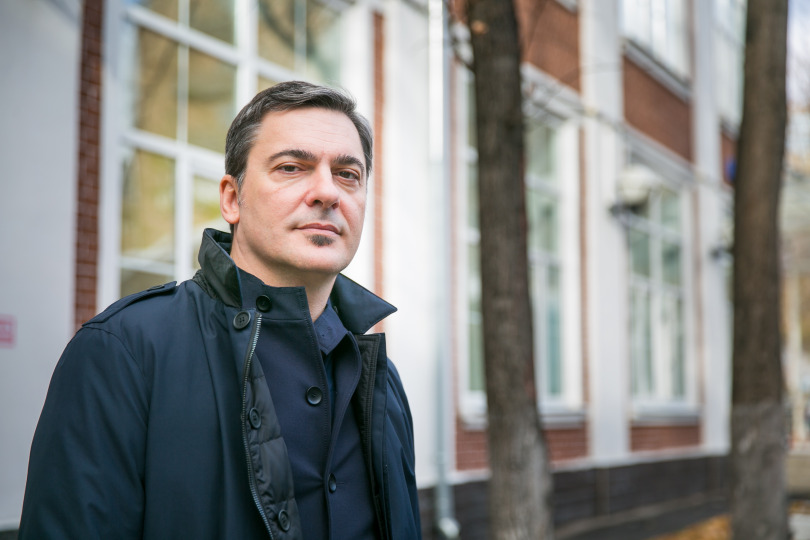The Mission of New Universities
On May 19-21, St. Petersburg hosted the third International Conference on Education and Global Cities: Horizons for the Contemporary University. The conference saw the participation of representatives from universities in Hong Kong, Torino, Newcastle, Beijing, Oslo, Brussels, and beyond. It also featured more than 20 plenary sessions, round tables, lectures, and seminars.
HSE and Berkeley to Conduct Joint Research
The HSE Institute of Education and the University of California – Berkeley (USA) have signed a memorandum to jointly administer an international Student Experience in the Research University (SERU) Consortium until 2020. The memorandum calls for the two universities to implement a major four-year project on higher education studies involving over 30 universities from various countries.
Is Shadow Education Good for Us?
Prashant Loyalka is a visiting Leading Research Fellow at the HSE Institute for Education and the International Laboratory for Education Policy Analysis. His research article, ‘Does Shadow Education Help Students Prepare for College?’ will be published in the International Journal of Educational Development Vol 49, in July 2016. In an interview with HSE News Service, Dr Loyalka talked about his research into the advantages and shortcomings of shadow education and about why American parents send their kids to after-school Russian math class.
Private Tutors Do Not Help Pass the Russian State Exam
Shadow education for high school students, such as private tutors or preparatory courses, is often treated by families as a mega-project requiring substantial investments of money and effort. Such investments, however, rarely pay off for underachieving students who are often unaware of the quality of shadow education and thus may choose the wrong providers. A study by Andrey Zakharov, Deputy Head of the HSE Institute of Education’s International Laboratory for Education Policy Analysis, and Prashant Loyalka, leading research fellow of the same Institute, has debunked some of the more popular myths concerning the effect of shadow education.

'What Makes ICEF Special is the High International Standards of the Education it Provides'
On November 6 and 7 ICEF and the International Laboratory of Financial Economics (LFE) held the Fourth International Moscow Finance Conference. Christian Julliard, Academic Director of LFE, has talked to HSE News Service about the conference and about the education of future economists at the International College of Economics and Finance.
Without Advanced Education, Young People Likely to Stay Unemployed
The level of education has a direct impact on young Russians’ chances of getting a job. Young men and women with some post-secondary education – in particular those with higher education – experience a shorter transition to their first employment and a fairly low risk of staying unemployed, while those with just nine year of compulsory secondary school – in fact, 20% of Russians under 29 – are likely to remain unemployed for prolonged periods, according to Elena Varshavskaya, professor of the HSE Department of Human Resources Management.
Speech Development Can Save from Poverty
Coming from a low-income, uneducated family can affect a child’s language skills, resulting in underdeveloped, ungrammatical speech, which hinders academic performance and limits one’s chances of success in life. However, parents can help a child offset the effects of a negative family background, according to Kirill Maslinsky, research fellow at the Laboratory of Sociology in Education and Science, HSE campus in St. Petersburg.
Fears about School Exams Exaggerated
Parents of school students in Moscow tend to believe that test assignments in two major final exams—the Basic State Exam (BSE) and the Unified State Exam (USE)—are too complex and teachers fail to properly prepare students for the finals; this negative attitude, which appears to be a widely-held stereotype not necessarily supported by evidence, is formed long before the exams come round. However, according to a study by Alina Pishnyak and Natalia Khalina, once the exams are over, families no longer consider them so hard to pass.
Social Stratification Reproduced in Education
By choosing education for their children, parents tend to perpetuate social inequalities. While educated middle-class parents invest in their children's future by selecting the best possible school and becoming actively involved in the educational process, working-class families often feel they cannot afford to choose and instead, send children to the nearest school, expecting them to make it on their own, according to Larisa Shpakovskaya, Associate Professor at the Department of Sociology, HSE Campus in St. Petersburg.
Student Dropout Process Mimics a Trial
Decisions relating to student dropout often resemble a trial with students as defendants and teachers as prosecutors and judges. This approach can create barriers between students and staff and raise the issue of the university's mission, according to Ivan Gruzdev, Evgeny Terentiev and Elena Gorbunova of the HSE’s Internal Monitoring Center.


Deadline for application - March 17, 2024